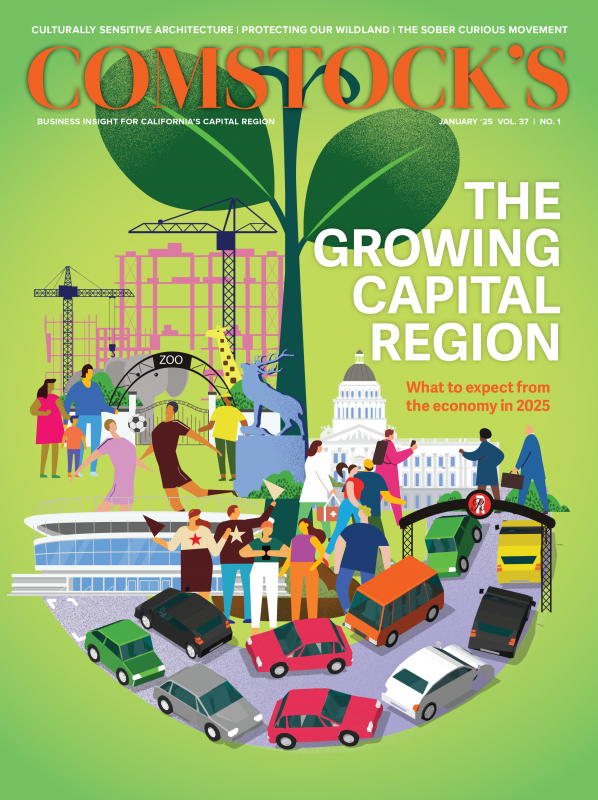It was a moment of clarity for Amanda Altman Brincat.
“We were in Vegas — I popped a White Claw and was like, ‘I don’t want this anymore,’” she says. “My entire social life had revolved around going out for drinks and celebrations,” she shares. “So not only did I have this big gap in my time but also the way I handled emotions. I realized very quickly that I needed a replacement.” She set it down and hasn’t picked up a drink since.
Alcohol is deeply ingrained in American culture, a billion-dollar industry woven into everything from birthday parties to business deals, relaxation, socializing and de-stressing. But it’s a love-hate relationship: California Highway Patrol reported over 1,100 DUI arrests over the Thanksgiving 2024 weekend alone. And it’s estimated there are over 178,000 alcohol-related deaths in the U.S. each year.
The COVID-19 pandemic saw alcohol sales surge, with over half of Americans drinking more during the lockdowns. However, it appears these days younger generations are beginning to buck the trend.
Earlier this month, the U.S. surgeon general released a report warning that alcohol can cause cancer and advocating for warning labels. Alcohol stocks took a dive.
A 2023 Gallup poll shows that while drinking rates have increased among older adults, alcohol consumption among 18 to 34-year-olds dropped by 10 percent over the past decade, from 72 percent to 62 percent. At the same time, cannabis use has reached record levels across all age groups.
With economic pressures, a deeper awareness of mental health issues and trends like Dry January and Sober October, Millennials and Gen Z are driving the “sober curious” movement, rethinking their relationship with alcohol to make healthier, more intentional choices.
It’s a gradual shift, but one that reflects a broader cultural change that’s inspired some local trailblazers to carve out new spaces in a growing segment.
The Teetotalist: Forging new paths
Amanda Altman Brincat, left, is co-owner with her wife, Kathryn,
right, of The Teetotalist, a pop-up bar specializing in craft
cocktails made with zero-proof alcohol, such as gin, vodka and
bourbon.

After a search for sober activities left them feeling uninspired, Amanda and her co-owner and wife Kathryn Altman Brincat were joking around one day when they came up with the idea of opening their own bar. “Why not, we thought,” she says. “It didn’t exist here.”
The Teetotalist launched in 2022 and quickly gained a following, thanks to a welcoming non-alcoholic beverage community eager to support a fledgling industry and a clientele (about 30 percent Gen Z and half Millennials) who have destigmatized not wanting to drink. “I think our generation and the younger generation are putting a bigger emphasis on mental health than maybe older ones,” says Kathryn. “People just want to be more present these days.”
The duo has been active at events like the recent Farm-to-Fork Festival, local markets and even a movie premiere, but increasing costs and smaller crowds have led them to halt pop-ups while they continue their search for a permanent location.
“We just want people to be the best version of themselves,” says Amanda. “Whether they’re a regular of ours because they don’t drink, or they just want to try something new. We just want people to be happy and healthy.”
Mocktails and the rise of RTDs
Navigating the nightlife while sober can be challenging, but a thoughtfully crafted mocktail can ease the transition. While the concept is nothing new — legend has it the Shirley Temple was the first — the modern mocktail is a sophisticated beverage that goes far beyond just removing the booze.
A focus on fruit, floral and herbal elements and key ingredients like bitters can create mocktails with a vibe. The Teetotalist’s “Bee Happy” mixes Dhos Gin Free, honey syrup, butterfly pea powder and lemon. Kathryn’s favorite, “The U-Hauler,” mixes a zero-proof spirit called Dromme with lemon and apricot jam.
The industry has exploded in recent years. Sales of nonalcoholic beer, wine and liquor shot up by 32 percent from 2022 to 2023. Earlier this year, a non-alcoholic beer became the top-selling beer at Whole Foods. Even singer Katy Perry released her own brand of non-alcoholic aperitifs in 2022.
Lindsay Nader, co-owner and marketing director of Ro Sham Beaux in Midtown Sacramento, says the growing trends right now in the ready-to-drink market, or RTD, are mushroom ingredients, often lion’s mane or reishi, and adaptogens — herbs and plants thought to neutralize the effects of stress on the body. According to UCLA Health, “growing research shows that adaptogens help the body regulate in many ways, including improving mood, balancing hormones, fighting fatigue and boosting the immune system.”
“Basically, something that’s going to help your nervous system,” explains Nader. “There are ones that will lift and ones that will mellow. They’re like health tonics that kind of take the place of a cocktail. They mainly help with stress relief, dopamine levels and help regulate your cortisol levels.”
Ro Sham Beaux: Embracing innovation
While the trend challenges traditional bars, it also pushes them to innovate. “Actually, it’s not even a trend anymore, it’s mainstream,” says Nader, who says most places these days offer at least a small selection of non-alcoholic drinks. The team, management and ownership are making those choices as well, she says. “So, as a company, we are doing our best to adapt and provide incredible products that people still want to enjoy.”
Ro Sham Beaux, an intimate wine bar in Sacramento, has an
extensive menu of non-alcoholic drinks. General Manager Alec
Moreno mixes up a mocktail. One of their most popular is the
Baccalaureate, which features the juice of unripened red grapes.

“If someone says, ‘Oh, I’m not drinking,’ we always say, ‘No, no, let me make you something delicious that you can really enjoy holding in your hand,’” says Nader.
Ro Sham Beaux’s zero-proof menu is extensive, and they pride themselves on making mocktails people will remember. Their best-seller, the Baccalaureate, blends Verjus rouge (the pressed juice of unripened red grapes) with Seedlip, a British brand of non-alcoholic spirits. A selection of zero-proof beer, wine and sparkling CBD water rounds out their menu.
“With this influx of people not drinking, we now have a ton of new products on the market to play with,” explains General Manager Alec Moreno, who says customers love seeing a full page of non-alcoholic options. “It’s exciting to them, and they feel more welcome.”
Nader agrees. “I think people are really proud of the choices they make. We have a ton of people that come out here and don’t have any alcohol, and I’m reposting their Instagram stories, and it looks like they’re having the wildest night,” she shares. “So, I think that stigma of ‘Oh, you’re not drinking’ is starting to fall away.”
Hella Happy Aura: Modern health tonics
“I think people in general now are more conscious of their health and looking to stimulate themselves in different ways,” says Tori Steele, owner of Hella Happy Life, an herbal mocktail pop up bar that launched in 2021 and recently celebrated a grand opening at her new space, Hella Happy Aura, inside the Guild Theatre in Oak Park. Steele’s mission is to provide a social and creative space where people can connect over functional mocktails created with more traditional medicinal herbs.
“My mocktails combine herbs and adaptogens to create healing modalities for social anxiety or nervousness,” says Steele, a former bartender turned herbalist. “Drinks that relax you and calm you down but without alcohol” — like the Desire, an “aphrodisiac” composed of damiana (made from wild shrubs), Schisandra berry, skullcap, dragon fruit and tonic. “Basically, I try to name the drinks after all the things that people might be looking for when they’re drinking alcohol,” she explains.
Similar to the Altman Brincats, Steele was newly sober and craving more engaging experiences. “Going to a regular bar doesn’t cut it as much — it’s not as fun,” she explains. “I find that being in a creative space really helps me open up and talk to people.” That led to her hosting a flurry of events and workshops — floral arranging, a sound bath and women in business meetups. “Here at Hella Happy, our values are presence, growth and uplift,” says Steele. “It’s all about finding different ways to connect.”
For those trying out Dry January or seeking a long-term change, Steele advises, “Take it one day at a time. One experience at a time. Just keep making the decision over and over. I’m not going to drink today, and before you know it, it will be 30 days.”
A healthy direction
“I think one of the huge benefits of the one-month reset challenges like Sober October and Dry January,” says Dr. Katren Tyler with UC Davis Medicine, “is that 30 days is around the period of time where people who are social or moderate drinkers can actually change their habits, and perhaps reevaluate their relationship to whatever it is they’re consuming.” Tyler says those who participate usually want to make a healthy change and perhaps just need to reset their habits in a healthy direction.
For those who suspect they might have a serious dependency on alcohol, it’s not generally advised that people just stop drinking, says Tyler. “There are medical options now that can help people attain sobriety without the risks of alcohol withdrawal,” she says.
But for those who feel they are just taking a break, Tyler says the month of sobriety is an ideal time to reflect and ask yourself some hard questions. “Do you sometimes partake a little too generously? A month away from that substance can be a good reminder of some of the benefits you might feel.”
It’s all about balance, says Tyler, and figuring out what is truly right for you.
Stay up to date on business in the Capital Region: Subscribe to the Comstock’s newsletter today.
Recommended For You

AI in Education: Helpful Tool or Sinister Danger?
Most college professors are wary of it, but others embrace it as a learning advantage
All around the world, academic institutions, from the renowned online Khan Academy through to leading research universities, are grappling with the extraordinarily rapid rise of artificial intelligence systems capable of generating human-like responses to complex questions.
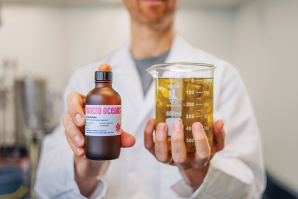
The Power and Potential of Seaweed
From keeping oceans healthy to being used as an alternative to plastics, researchers believe seaweed has a multitude of uses
Nearly 2,000 miles northwest of Sacramento, Matthew Perkins rode a boat out into the Gulf of Alaska and saw nothing but endless potential for growth. “It’s kind of overwhelming how much opportunity there is,” he says. “You’re on the water, snow-capped mountains in the backdrop, you look down and see this incredible biomass growing. It’s literally the bounty of nature.”
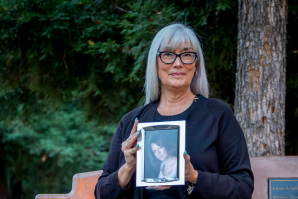
The Life-Saving Organ Trail
How new technology is helping transplant centers send and receive organs from great geographic distances
In 2022, the United States Food and Drug Administration approved the TransMedics Organ Care System, or OCS device. Known as the “heart in a box,” this device uses normothermic perfusion to pump blood through a removed heart and preserve it for longer periods until it can be transplanted into a new person.

New Year, New Administration. What Can We Expect?
The Capital Region’s economy in the first half of 2025 should be unspectacular but steady, forecasters say
The apocalyptic tenor of the recent election made it seem disaster was inevitable no matter who won. But at least on the economy, the first half of 2025 should be a sigh of relief, letting most businesses stick to small ball.

Speaking Out
Man with ALS is able to ‘speak’ again thanks to neurotechnology from UC Davis
Within minutes, the words he wanted to speak appeared on a monitor and were spoken aloud by a computer in a voice resembling his own using recordings from videos made before his diagnosis. It brought everyone in the room to tears. “On day two of this use by Casey, he was talking to his daughter for the first time in her memory. That was so gratifying,” says UC Davis Neuroprosthetics Lab co-director Sergey Stavisky.
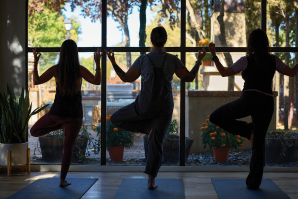
The Rise of Alternative Health and Wellness
Businesses in the Capital Region consider the whole person
The approach of Whole Health, a movement led by the U.S. Department of Veterans Affairs, is “Let me understand who you are as a person. … What matters to you as opposed to what’s the matter with you,” says Dr. Michelle Dossett. “I think eventually it’s going to transform what we do in conventional medicine in this country more broadly.”

Will We Ever Fix Our Waterfront?
City fails to act on improvement needs for Rio City Café and other areas of Old Sacramento Waterfront
The district tells the story of the Gold Rush, the railroads, Sacramento’s beginnings and more, but it has a reputation as being merely a tourist novelty spot with gag gift and candy shops.

How Did We Get Here?
A politician, a pastor, a PR exec, a psychologist and a professor try to get at the root of the ugly discourse in our country
The drivers of divisiveness were decades in the making. From the 1950s to 1980s, the “Big Three” networks of ABC, NBC and CBS created a sort of monoculture — a shared set of TV shows, water cooler talk and facts that society could agree on. Today, the news media is fractured, and we can’t even agree on the facts.
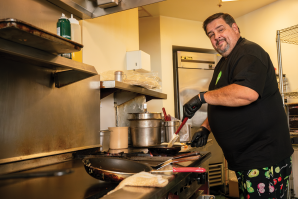
How the $20 Minimum Wage Is Playing Out
The law was written to target big fast-food chains — but that’s not how it’s working in the Capital Region
As economists and advocates debate the merits, the experiences of restaurant owners in the region offer some evidence of what happens in practice.




